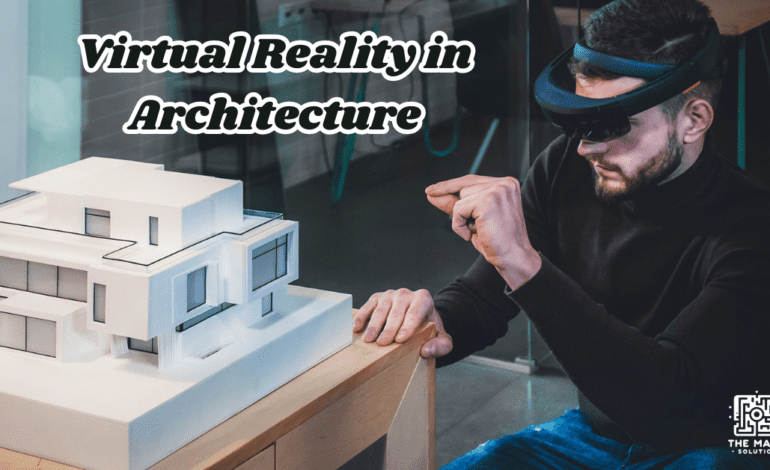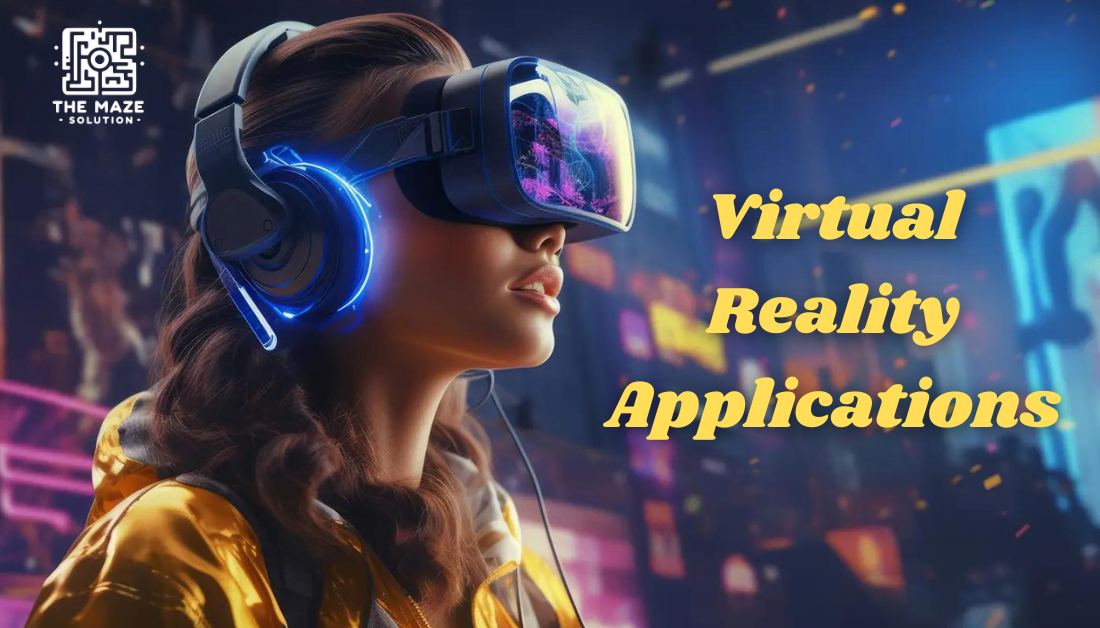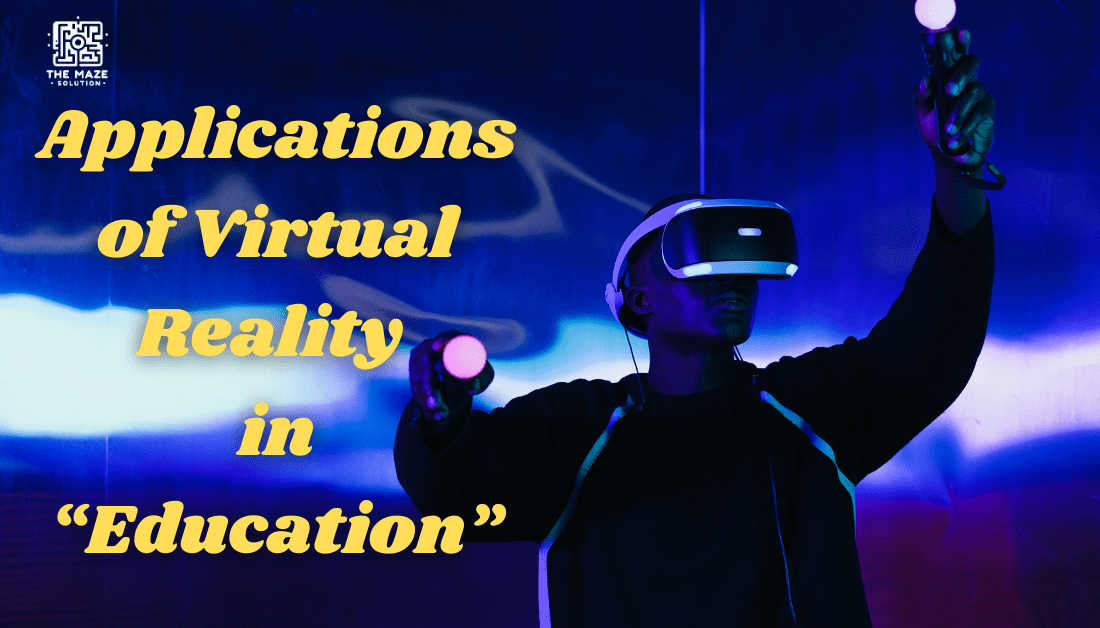Virtual Reality in Business World: Applications, Benefits, and Strategic Impacts
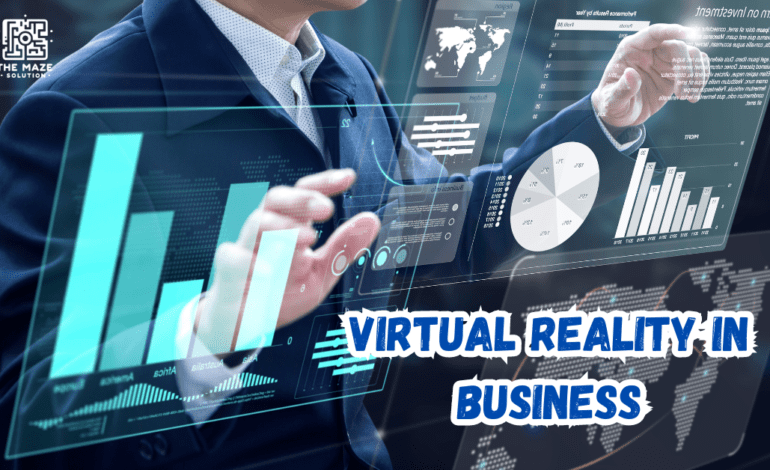
In a world where innovation drives success, businesses are constantly on the lookout for game-changing technologies that can propel them ahead of the competition. Enter Virtual Reality (VR), a technology that has moved beyond gaming and entertainment to make significant strides in the business world. This blog post explores how VR is transforming industries, offering new avenues for growth, efficiency, and engagement.
Introduction to Virtual Reality in Business
Understanding Virtual Reality (VR) in Business
Virtual Reality is no longer a futuristic concept confined to science fiction. It is a technology that creates immersive, simulated environments, allowing users to interact with 3D worlds in ways previously unimaginable. In the business context, VR’s evolution has been rapid, with its applications now spanning various sectors—each leveraging VR’s power to enhance processes, experiences, and results.
The Growing Importance of VR in Business
The adoption of VR in the business world is gaining momentum. Recent market trends and statistics show a steady rise in companies integrating VR into their operations. This shift is driven by the technology’s ability to create unique experiences that captivate audiences and streamline complex tasks. From Fortune 500 companies to nimble startups, VR is being embraced across the board, promising substantial returns on investment.
Applications of Virtual Reality in Business
VR in Business Training and Development
Training and development are critical components of any organization’s success. VR is revolutionizing these areas by providing immersive, realistic simulations that enhance learning and skill development. For instance, companies like Walmart and Boeing have implemented VR training programs to equip their employees with practical skills in a risk-free environment. These initiatives have not only improved training outcomes but also increased employee engagement and retention.
Virtual Reality in Marketing and Sales
In the realm of marketing and sales, VR is a game-changer. It allows businesses to create compelling marketing campaigns, showcase products in virtual showrooms, and offer interactive experiences to potential customers. Brands like IKEA and Volvo have leveraged VR to enable customers to visualize and interact with their products before making a purchase. This approach not only boosts customer engagement but also drives sales by providing memorable experiences.
VR in Business Collaboration and Communication
The rise of remote work has highlighted the need for effective collaboration tools. VR is taking this a step further by creating immersive virtual workspaces where teams can collaborate seamlessly, regardless of location. Companies such as Spatial and Rumii are leading the charge in this domain, offering platforms that facilitate virtual meetings, brainstorming sessions, and collaborative projects. These tools enhance communication and foster a sense of presence that traditional video calls cannot match.
Virtual Reality in Product Design and Development
VR is transforming product design and development by allowing businesses to prototype, validate designs, and test products in virtual environments. This approach speeds up the design process and reduces costs associated with physical prototyping. Automotive giants like Ford and BMW have successfully integrated VR into their design workflows, resulting in faster time-to-market and improved product quality.
VR in Business Events and Conferences
The pandemic has accelerated the shift towards virtual events, and VR is at the forefront of this transformation. Virtual reality provides a platform for hosting immersive conferences, trade shows, and networking events that replicate the experience of in-person gatherings. Companies like HTC Vive and AltspaceVR have hosted successful virtual conferences, attracting global audiences and delivering engaging experiences.
Benefits of Virtual Reality in Business
Enhancing Customer Experience with VR
At the heart of every successful business is a satisfied customer. VR enhances the customer experience by offering immersive, personalized interactions that leave a lasting impression. Retailers like Sephora and Nike have used VR to provide customers with virtual try-ons and interactive shopping experiences, resulting in increased brand loyalty and higher conversion rates.
Cost Efficiency and ROI of VR in Business
One of the most compelling benefits of VR is its potential for cost savings and high returns on investment. By reducing the need for physical resources and streamlining processes, VR offers a cost-effective solution for businesses. Case studies from the construction and manufacturing industries demonstrate how VR has led to significant cost reductions and enhanced project efficiency.
VR in Business for Innovation and Competitive Advantage
Innovation is the lifeblood of any successful business. VR empowers companies to innovate by exploring new ideas, testing concepts, and creating groundbreaking solutions. Forward-thinking businesses that harness VR’s potential gain a competitive edge, staying ahead of industry trends and setting new standards for excellence.
Employee Engagement and Productivity through VR
Employee motivation and productivity are crucial for organizational success. VR enhances these areas by providing engaging, interactive experiences that boost morale and efficiency. Companies like DHL and Siemens have implemented VR-based training programs that have resulted in higher employee satisfaction and improved performance metrics.
Strategic Impacts of Virtual Reality on Business
The Long-Term Impact of VR on Business Models
The integration of VR is reshaping business models and strategies. Organizations are rethinking their approaches to customer engagement, product development, and service delivery. As VR technology continues to advance, its long-term impact on business models is expected to be profound, with companies adopting innovative strategies to stay competitive.
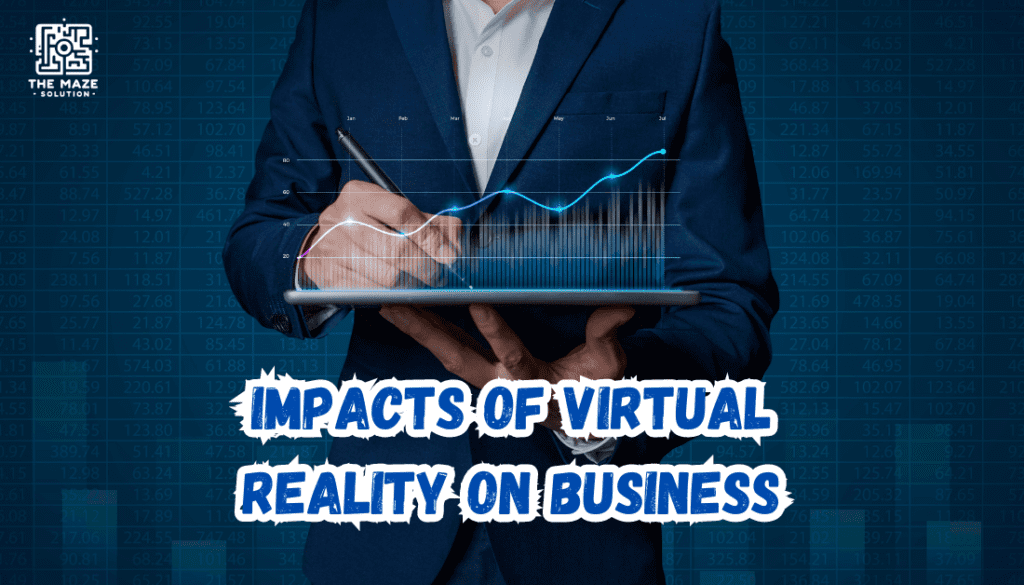
VR in Business Ethics and Data Privacy Considerations
With great power comes great responsibility. The adoption of VR in business raises important ethical and data privacy considerations. Companies must ensure that VR implementations respect user privacy, adhere to ethical guidelines, and safeguard sensitive information. Establishing best practices for VR use is essential to building trust with customers and stakeholders.
VR’s Impact on Consumer Behavior and Market Dynamics
VR is influencing consumer behavior and market dynamics by shaping expectations and driving demand for immersive experiences. Businesses that leverage VR effectively can tap into new markets and attract tech-savvy consumers. The ripple effect of VR on industry standards and competition is already evident, with companies adapting to the changing landscape.
Preparing for the Future: VR in Business Strategy
To fully capitalize on VR’s potential, organizations must integrate it into their long-term business strategies. Forward-thinking leaders recognize the importance of investing in VR technology, fostering a culture of innovation, and developing robust implementation plans. By doing so, businesses can position themselves for sustained success in a rapidly evolving digital world.
Challenges and Considerations in Implementing VR in Business
Technical Challenges and Infrastructure Requirements
Implementing VR in business comes with technical challenges, including hardware requirements, software compatibility, and network infrastructure. Companies must carefully assess their technical capabilities and invest in the necessary resources to ensure a seamless VR experience. Collaboration with technology partners can help overcome these hurdles and pave the way for successful implementation.
Cost and Investment Considerations
While VR offers substantial benefits, the initial investment can be a barrier for some businesses. Organizations must evaluate the cost-benefit ratio and consider the long-term returns on investment. Exploring funding options, seeking partnerships, and conducting thorough financial analyses are crucial steps in making informed investment decisions.
Ensuring Accessibility and Inclusivity in VR
Inclusivity is a key consideration when implementing VR in business. Ensuring that VR experiences are accessible to all employees and customers, regardless of physical or cognitive abilities, is essential. Businesses should adopt inclusive design practices and provide accommodations to create a welcoming environment for everyone.
Case Studies: Success Stories of VR in Business
Retail Industry: Revolutionizing Shopping with VR
Major retailers are redefining the shopping experience with VR. Virtual reality enables customers to explore virtual stores, try on products, and make informed purchasing decisions. This innovation has led to increased customer satisfaction, higher sales, and a competitive edge in the retail industry.
Real Estate: Virtual Reality in Property Viewing
The real estate sector has embraced VR for virtual property tours and remote transactions. VR allows potential buyers to explore properties from anywhere in the world, reducing the need for physical site visits. Success stories from real estate companies highlight the significant impact of VR on property sales and customer convenience.
Healthcare: VR in Medical Training and Patient Care
Healthcare businesses are leveraging VR for medical training and patient engagement. VR simulations provide healthcare professionals with realistic training scenarios, improving skills and confidence. Patients also benefit from VR applications that enhance therapy, rehabilitation, and overall care experiences.
Manufacturing: VR in Product Design and Quality Control
VR is playing a pivotal role in optimizing manufacturing processes and ensuring product quality. Manufacturers use VR to visualize designs, conduct virtual inspections, and identify potential issues before production. This approach has led to improved product quality, reduced defects, and increased operational efficiency.
Conclusion
Recap of VR’s Role in Business Transformation
In conclusion, Virtual Reality is a powerful tool that is transforming the business landscape. Its applications span training, marketing, collaboration, design, and more, offering substantial benefits such as enhanced customer experiences, cost efficiency, innovation, and competitive advantage. The strategic impact of VR on business models, ethics, and consumer behavior is profound, with organizations poised to reap long-term rewards.
Final Thoughts on the Integration of VR in Business
For businesses seeking to thrive in the digital age, embracing VR technology is not just an option—it’s a necessity. By integrating VR into their strategies, companies can unlock new opportunities, drive innovation, and reshape their future. The potential for VR to revolutionize business practices is immense, and those who seize this opportunity will lead the way into a new era of business transformation.

